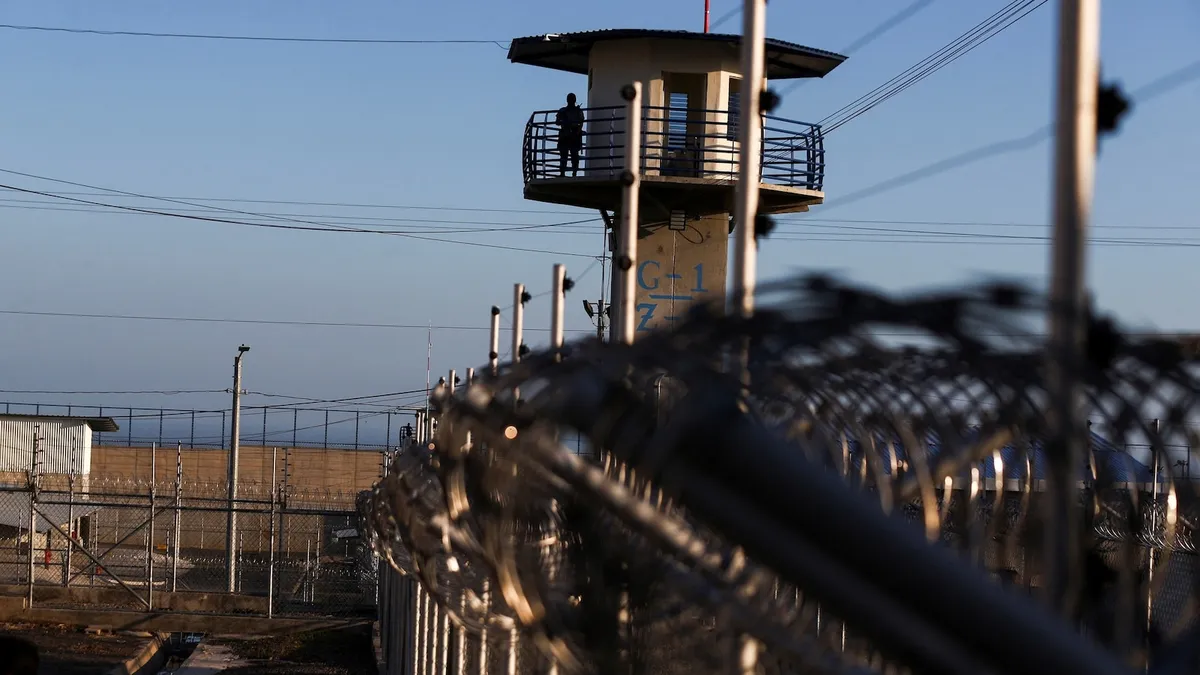
A federal judge in Maryland has ordered the Trump administration to facilitate the return of a 20-year-old Venezuelan man who was unjustly deported to El Salvador. This ruling, issued on Wednesday, highlights a significant breach of a previous court settlement regarding the treatment of unaccompanied minors seeking asylum in the United States. U.S. District Judge Stephanie Gallagher, appointed by Trump, emphasized that the government must not only assist in the return of this individual but also refrain from deporting other individuals covered under the same settlement.
The class action lawsuit dates back to 2019, when it was filed on behalf of individuals who entered the U.S. as unaccompanied minors and later sought asylum. The plaintiffs argued that they should be allowed to have their asylum applications adjudicated while remaining in the United States. This legal battle culminated in a settlement agreement reached in 2024, which now appears to have been violated.
Attorneys representing the plaintiffs asserted that the Trump administration unlawfully removed one of the class members, referred to by the pseudonym Christian, to El Salvador on March 15. This deportation occurred alongside the removal of three planeloads of alleged migrant gang members to the CECOT mega-prison in El Salvador, raising serious concerns over the administration's adherence to the legal settlement.
In her opinion filed on Wednesday, Judge Gallagher referenced the case of another wrongly deported individual, Kilmar Abrego Garcia. She stated, "This court will order defendants to facilitate Christian's return to the United States so that he can receive the process he was entitled to under the parties' binding Settlement Agreement." The judge mandated that the defendants must make a good faith request to the government of El Salvador and release Christian into U.S. custody for transport back to the United States, where he can await the adjudication of his asylum application by USCIS.
Judge Gallagher characterized the deportation as a breach of contract, underscoring that this case revolves around a contractual dispute rather than the government’s authority to remove individuals under the Alien Enemies Act. This act, a relic from the 18th century, has often been used to remove noncitizens with limited due process rights. The Trump administration, however, argued that Christian's removal did not violate the settlement because his designation as an alien enemy under the AEA excluded him from the class of individuals protected by the settlement.
A sworn declaration from a U.S. Immigration and Customs Enforcement (ICE) official revealed that Christian had been arrested in January for possession of cocaine. Following his conviction in the 482nd District Court of Harris County, Texas, ICE determined that he was subject to removal under the AEA due to his membership in the Venezuelan criminal gang Tren de Aragua.
Attorneys for the class of migrants also raised alarms in court filings regarding another Venezuelan man, an 18-year-old identified as Javier, who was reportedly in imminent danger of deportation earlier this month. Judge Gallagher ruled that Javier was also covered by the settlement agreement and issued a temporary restraining order prohibiting the government from removing him from the United States.
This case continues to unfold, and its implications for the treatment of asylum seekers and the enforcement of legal settlements in the U.S. immigration system remain significant. As the situation develops, the commitment to uphold judicial agreements will be closely monitored, particularly regarding the rights of vulnerable populations seeking refuge in the United States.